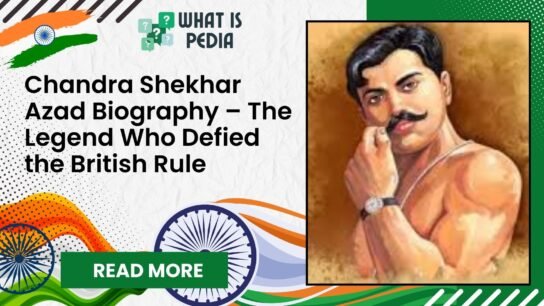Introduction
In the vast realm of Indian cinema, where stars rise and fade with time, one name that continues to radiate timeless brilliance is Manoj Kumar. A stalwart of Hindi cinema, known as Bharat in the hearts of millions, Manoj Kumar is celebrated not just for his talent, but for the patriotism that his roles so powerfully projected on screen. Whether you’ve searched for “actor Manoj Kumar biography” or browsed through “manoj kumar wiki”, one fact stands tall—he’s a legend whose cinematic journey has forever shaped the narrative of national pride in Bollywood.
A man of intense expression and gripping dialogue delivery, Manoj Kumar became synonymous with patriotism, influencing a generation through iconic films like Upkar, Purab Aur Paschim, and Kranti. His commitment to telling stories that captured the spirit of India transformed him from a popular actor to a cultural icon..
Let’s celebrate a cinematic visionary who not only entertained but ignited the flame of patriotism in millions of hearts.
Early Life and Background
Manoj Kumar, born as Harikishan Giri Goswami on July 24, 1937, in Abbottabad, a part of British India (now in Pakistan), had his roots firmly grounded in simplicity and resilience. After the Partition of India in 1947, his family, like many others, migrated to Delhi—a move that left lasting impressions on his young mind, later reflected in the themes of national identity that permeated his films.
As of 2025, manoj kumar age is 87. With a height of approximately 5 feet 10 inches, (manoj kumar height in feet) he possessed a commanding screen presence.
Growing up amid the turbulence of post-Partition India, Manoj Kumar drew his first lessons of patriotism and sacrifice from his own family’s displacement. These experiences would later provide the emotional foundation for his portrayal of nationalistic characters.
He pursued his education at Hindu College, Delhi University, where he cultivated a love for acting and storytelling. His artistic inclinations and strong oratory skills made him a standout in college theatre.
From humble refugee beginnings to becoming the voice of the nation on screen, Manoj Kumar’s early life shaped his deep connection with India’s soul. The values of service, integrity, and pride would soon turn into recurring themes in his movies—resonating with every Indian who watched them.
Entry into the Film Industry
Before he became the icon known to generations, Manoj Kumar’s initial entry into cinema was driven purely by passion. Inspired by legends like Dilip Kumar and Ashok Kumar, he ventured into the Hindi film industry in the mid-1950s.
His debut came in 1957 with the film Fashion, marking manoj kumar first movie on celluloid. While the film didn’t make a major splash, it laid the groundwork for his acting career. He took on supporting roles in several films like Panchayat and Kaanch Ki Gudia before bagging leads.
It was with the film Shaadi (1962) that Manoj Kumar began attracting attention for his charming persona and acting prowess. Soon after, hits like Hariyali Aur Raasta and Woh Kaun Thi? firmly established him as a bankable actor.
Interestingly, Manoj Kumar adopted his screen name in honor of Dilip Kumar, whose birth name was Muhammad Yusuf Khan. Harikishan Goswami took inspiration from the revered actor’s screen name, thus becoming Manoj Kumar.
As he began to move up the ladder in Bollywood, it became clear that Manoj was not just another romantic hero—his potential lay beyond mainstream storytelling. His ability to convey complex emotions with conviction would soon redefine patriotic cinema in India.
Rise to Stardom: The Patriotic Hero
The turning point in Manoj Kumar’s career came with the 1965 release of Shaheed, a biographical film based on the life of Bhagat Singh. His portrayal of the revolutionary freedom fighter was raw, real, and deeply moving. This performance marked the beginning of his long-standing association with patriotic roles.
Post-Shaheed, Manoj Kumar transformed his career trajectory by creating and starring in films that highlighted India’s spirit. His directorial debut Upkar (1967)—inspired by then-Prime Minister Lal Bahadur Shastri’s slogan “Jai Jawan Jai Kisan”—was a phenomenal success. Not only did he star in the film, but he also directed and wrote it, showing his multifaceted talent.
Upkar established Manoj as “Bharat”—both a character and a symbol of Indian identity. His soulful depiction of a selfless farmer-soldier remains iconic. The film won him the National Film Award and cemented his status as a nationalistic icon.
He continued this streak with Purab Aur Paschim (1970), which dealt with India’s cultural roots versus Westernization. This film further solidified his image as a patriotic crusader. In it, his character delivers stirring monologues about Indian values, prompting audiences to introspect on the importance of cultural preservation.
In 1974, he made Roti Kapda Aur Makaan, another directorial masterpiece that addressed unemployment and poverty. Though not solely patriotic, it reflected socio-economic issues with a nationalistic undertone.
However, it was Kranti (1981) that became his magnum opus. A period drama on India’s freedom struggle, Kranti was one of the biggest box-office hits of the decade. With a stellar cast including Dilip Kumar, Shashi Kapoor, and Hema Malini, Manoj Kumar proved he could balance both scale and substance.
Throughout the 70s and 80s, the term “Bharat Kumar” became synonymous with Manoj Kumar. His dedication to portraying morally upright, culturally grounded Indian heroes carved a unique niche for him. He was not just acting—he was inspiring.
Complete Manoj Kumar Movie List
Here is a chronological breakdown of manoj kumar movies that showcase his legendary career:
 1950s–1960s
1950s–1960s
- Fashion (1957) – Manoj Kumar first movie
- Panchayat (1958)
- Hariyali Aur Raasta (1962)
- Shaadi (1962)
- Woh Kaun Thi? (1964)
- Shaheed (1965)
- Himalaya Ki God Mein (1965)
- Do Badan (1966)
- Patthar Ke Sanam (1967)
- Upkar (1967)
 1970s
1970s
- Purab Aur Paschim (1970)
- Roti Kapda Aur Makaan (1974)
- Dus Numbri (1976)
- Sanyasi (1975)
- Santosh (1976)
 1980s
1980s
- Kranti (1981)
- Painter Babu (1983)
- Clerk (1989)
 1990s–2000s
1990s–2000s
- Maidan-E-Jung (1995) – special appearance
- God and Gun (1995)
- Jai Hind (2000)

 Directorial Ventures
Directorial Ventures
- Upkar (1967)
- Purab Aur Paschim (1970)
- Roti Kapda Aur Makaan (1974)
- Kranti (1981)
- Clerk (1989)
His films often featured legendary actors like Ashok Kumar, Pran, Dilip Kumar, and Hema Malini, showcasing a combination of star power and meaningful content.
Personal Life and Family
Beyond the silver screen, Manoj Kumar led a deeply private and grounded life. He married Shashi Goswami, and the couple was blessed with children, including their son Kunal Goswami, who also tried his hand in acting during the 1980s and 90s.
Manoj Kumar family values mirrored those depicted in his films—rooted in culture, tradition, and humility. Despite his fame, he consciously stayed away from controversy and media glare. His wife, manoj kumar wife, was his pillar of support throughout his career.
Living a quiet life away from the limelight in Mumbai, he rarely made public appearances post the 1990s, choosing instead to spend time with his family.
Awards, Achievements & Honors
A man of stature and sincerity, Manoj Kumar has received numerous accolades over his lifetime:
- Padma Shri Award – One of India’s highest civilian honors.
- Dadasaheb Phalke Award (2016) – India’s most prestigious award in cinema, honoring his lifetime contribution.
- Filmfare Awards – Multiple nominations and wins, including the Filmfare Lifetime Achievement Award.
He has also received honors from various state governments and cultural organizations for his contribution to patriotic and socially conscious cinema.
His legacy goes beyond awards—it lives in the hearts of citizens inspired by his characters.
Later Years and Retirement
In the late 1990s, Manoj Kumar entered a phase of semi-retirement. He stopped directing and acting, focusing instead on mentoring and occasional appearances at award functions.
He also served on film advisory boards and jury panels for national awards, contributing to Indian cinema behind the scenes. His voice continued to echo in debates around cultural values in films.
A rare appearance at the Dadasaheb Phalke Award ceremony in 2016 was met with a standing ovation. Though less active, his legacy continues to inspire.
Manoj Kumar Death Rumors & Health Updates
Over the years, manoj kumar death rumors have occasionally surfaced, but as of now, there is no official confirmation of his passing. He has been reported to be living quietly with his family, facing some age-related health issues.
A recent Times of India article from 2024 quoted him stating his admiration for Akshay Kumar, calling him his patriotic successor.
Despite being away from public eye, he continues to be revered. His fans and the film fraternity occasionally share tributes online, keeping his legacy alive.
Influence on Future Generations
The blueprint Manoj Kumar created for patriotic cinema still shapes Bollywood storytelling today. Actors like Akshay Kumar and Aamir Khan have openly credited him as an influence.
Films like Swades, Rang De Basanti, and Airlift bear his DNA of national pride and societal responsibility.
Modern directors draw from his style of mixing drama, patriotism, and realism. His narratives weren’t just entertainment—they were a call to conscience.
His influence will likely remain etched in every film that salutes India’s spirit.
Current & Important Events (2024–2025)
 Lifetime Legacy Events:
Lifetime Legacy Events:
In 2024, retrospectives of Manoj Kumar’s films were screened at multiple cultural festivals, including the IFFI Goa Retrospective Series, drawing crowds of nostalgic fans.
 Bollywood Tributes:
Bollywood Tributes:
Akshay Kumar called him “the father of patriotic cinema” in a heartfelt tribute during Republic Day celebrations. Directors like Rajkumar Hirani and Kabir Khan also acknowledged his storytelling legacy.
 Possible Biopic:
Possible Biopic:
Talks are ongoing about a biopic on Manoj Kumar’s life, with suggestions that it may star Pankaj Tripathi or Ayushmann Khurrana.
 Digital Remaster:
Digital Remaster:
His films Kranti and Purab Aur Paschim are being digitally restored for OTT release in 2025.
These current happenings prove that Manoj Kumar’s influence continues well into the modern digital age.
Conclusion
From Abbottabad to Bollywood’s Bharat, Manoj Kumar has left an indelible mark on Indian cinema. His journey from partition refugee to a national icon is nothing short of inspirational.
His films, whether about farmers, freedom fighters, or the common Indian, reflected truth, pride, and the pulse of a nation. Even as time moves on, his works continue to resonate with new generations.
To truly understand the essence of patriotism on screen, one must revisit the films of Bharat Kumar. Whether you’re reading this as part of your quest for “actor Manoj Kumar biography” or simply curious about “manoj kumar movies”, his legacy remains unmatched.









